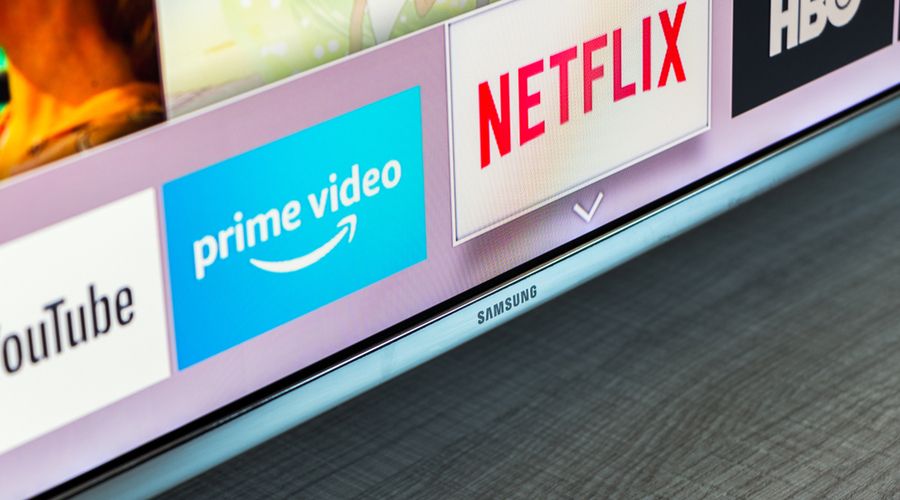Competition rising: Video streaming in Mena

If there is one pastime that people in the Middle East are unlikely to give up, it is watching television. In 2018, the daily time spent watching TV per capita in the region was 6 hours and 20 minutes according to Statista, more than double the global time of 2 hours and 48 minutes. But this is set to decline to 6 hours this year as users in the region switch from watching their shows on traditional television sets to streaming them online.
Between 2013 and 2019, the number of people watching television offline dropped from 98 per cent to 86 per cent in the Middle East and North Africa (Mena) according to the Media Use in the Middle East report. This drop has been driven by cheaper and faster internet connectivity and the rise of video on demand (VOD) and streaming services, also known as over-the-top (OTT) players.
As a result, the space has become more competitive, but the penetration of these services in the region pales in comparison to other parts of the world.
Starzplay, a UAE-based subscription VOD service partly owned by Lionsgate, launched in 2014 in response to rising demand for good quality content. Now, the company has the biggest market share in the subscriptions market with 29 per cent compared to US-based Netflix which has the second largest share in Mena with Wit24 per cent, according to the IHS Markit in its Pay TV & Online Video Report Mena 2019.
Netflix arrived in the Middle East in 2016, giving the industry a boost and bringing with it a sense of credibility and awareness of subscription-based streaming services.
Telecommunication and pay TV operators like OSN have launched their own OTT services as a way to maintain market share, while the parallel launch of Apple TV+ and Disney+ into the streaming television space last November in the US poses the threat of even more competition once they are launched in Mena.
“It is not a ‘one player wins it all’ business, different providers complement each other. OTT subscription prices allow customers to have more than one service. It is a great time to watch content,” says Danny Bates, co-founder and chief commercial officer at Starzplay.
The online subscription video market is pursuing the same growth pattern that the pay TV market had followed in the region. By 2023, online video subscriptions will reach almost five million, while revenues will reach $416 million according to the IHS Markit report.
Much of the demand for streaming services is coming from the UAE and Saudi Arabia which together account for 49 per cent of the total subscriptions in Mena. The demand for online streaming subscriptions is likely to overtake pay TV subscriptions like OSN and beIN by 2025.
However, streaming services need to have premium content from the biggest studios in the world in order to stand a chance to compete and bring customers on board, and content remains an expensive product.
Additionally, the significance of telling relevant stories catering to Mena audiences is becoming key, hence the surge in investment in original content production. Earlier this year, Shahid, MBC Group’s streaming platform relaunched, announcing a partnership with Disney and Fox to bring more than 3,000 hours of content to the biggest streaming library of Arabic content.
“Over the next two years, we aim to substantially increase the size of our investment into drama productions, thus increasing them fourfold, of which the majority will be original and exclusive content,” says Marc Antoine d’Halluin, group chief executive at MBC Group.
Netflix has also increased its original content offerings for Arab audiences while Starzplay recently announced a partnership with Academy Award-winning media and entertainment company, Image Nation Abu Dhabi, to create its first original content series.
Jawwy TV, an OTT platform launched in 2018 for the Mena region through Intigral, a digital provider of sports and entertainment, is seeking to make an impact in the way content is consumed in the region.
“Our roadmap is very intense, and we are trying to develop a product in order to match all the major OTT players in the world, but it will be dedicated for Mena content,” said Tony Saab, vice-president of products and content at Intigral. The service continues to explore agreements with numerous players, in addition to creating original content and acquiring Arabic content.
As more users begin to consume content online, competition will no doubt intensify. One casualty of this growing competition was Malaysia-based iFlix, which pulled out of the Mena region two years after its launch in 2017, unable to replicate the success of its core market in South East Asia.
“Streaming services have just scratched the surface of the market in Mena, despite all the [high] numbers,” says Bates who believes that the market is still establishing itself, and businesses will have to continue to evolve and strengthen their product to meet the rising demand.
According to Bates, “iFlix never really came into the region, they had success in Asia, but they came to Mena with the exact model, while it is a different territory, people, culture and ways of doing business”. For him, it was not about lack of market demand that caused iFlix to exit, it was unfit execution, something that every OTT player should bear in mind.


